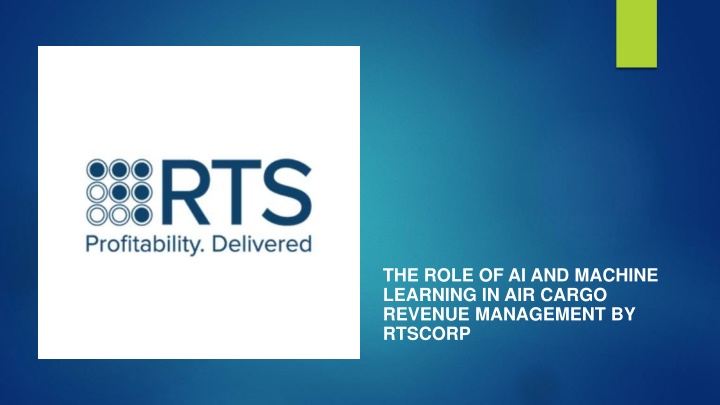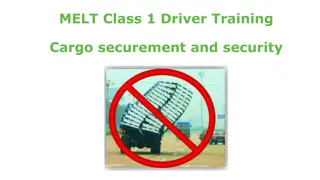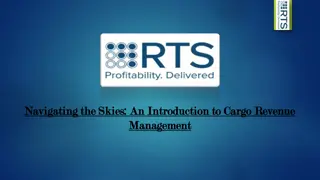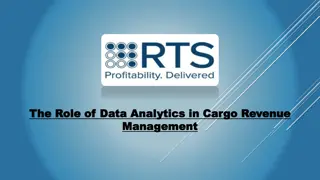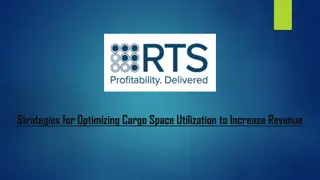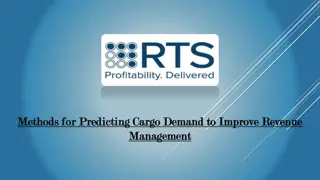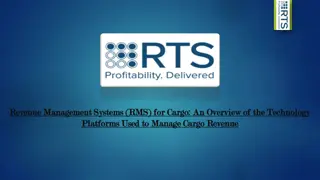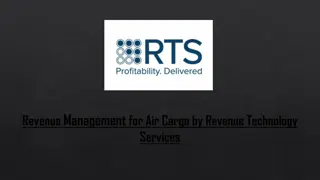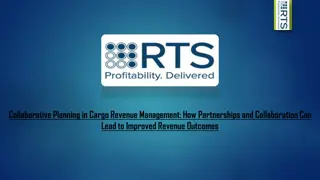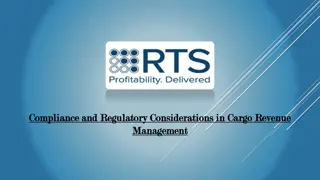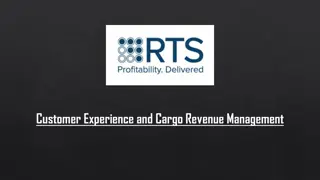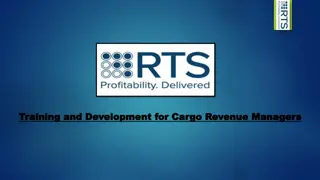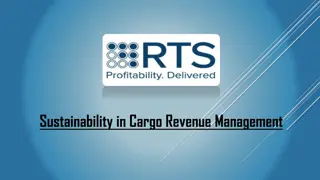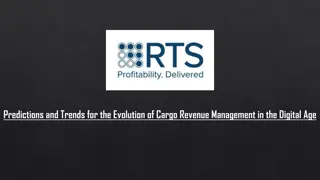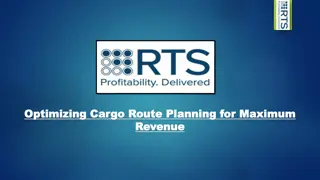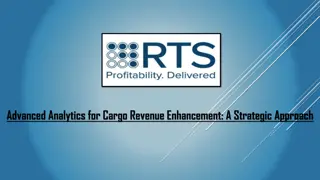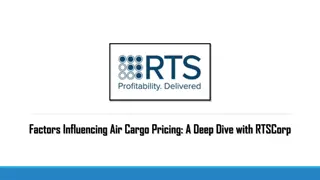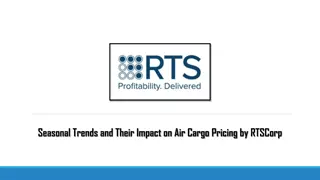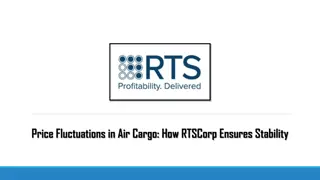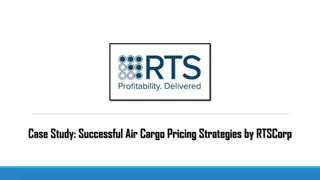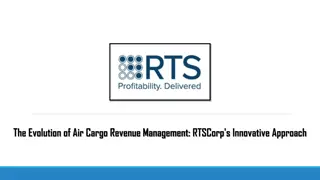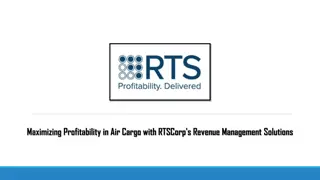The Role of AI and Machine Learning in Air Cargo Revenue Management by RTSCorp
The air cargo industry is a critical component of global trade, providing swift transport solutions for goods ranging from consumer electronics to perishable foods. However, itu2019s also an industry faced with unique challenges, such as fluctuating
Download Presentation

Please find below an Image/Link to download the presentation.
The content on the website is provided AS IS for your information and personal use only. It may not be sold, licensed, or shared on other websites without obtaining consent from the author.If you encounter any issues during the download, it is possible that the publisher has removed the file from their server.
You are allowed to download the files provided on this website for personal or commercial use, subject to the condition that they are used lawfully. All files are the property of their respective owners.
The content on the website is provided AS IS for your information and personal use only. It may not be sold, licensed, or shared on other websites without obtaining consent from the author.
E N D
Presentation Transcript
THE ROLE OF AI AND MACHINE LEARNING IN AIR CARGO REVENUE MANAGEMENT BY RTSCORP
The air cargo industry is a critical component of global trade, providing swift transport solutions for goods ranging from consumer electronics to perishable foods. However, it s also an industry faced with unique challenges, such as fluctuating demand, high operational costs, and volatile market conditions. For companies operating in this space, maximizing revenue while maintaining efficient operations is key. RTSCorp, a leader in advanced logistics technology, has developed innovative solutions leveraging AI and machine learning to redefine air cargo revenue management, with air cargo pricing at the core of its approach. Understanding the Complexities of Air Cargo Pricing Air cargo pricing is inherently complex due to the dynamic nature of the market. Factors such as fuel costs, economic shifts, seasonal demand, and global events can greatly impact air cargo rates. Traditional revenue management approaches often rely on historical data and manual adjustments, which can lead to outdated and inefficient pricing strategies. This is where AI and machine learning come into play, providing solutions that allow companies like RTSCorp to offer real-time, optimized pricing models that adapt to current market conditions.
RTSCorps AI-Driven Revenue Management Solution RTSCorp has implemented a powerful AI-driven revenue management system that analyzes vast amounts of data to enhance air cargo pricing strategies. By using machine learning algorithms, RTSCorp s system can process and interpret patterns from historical data, current market trends, and even external economic indicators. This enables predictive analytics, helping air cargo operators anticipate demand shifts, optimize pricing structures, and avoid revenue leakage. The AI systems developed by RTSCorp continuously learn and adapt, ensuring that air cargo pricing models remain relevant as new data flows in. This proactive approach allows companies to adjust their pricing in real-time, maximizing profit margins while remaining competitive. For example, during peak demand periods, RTSCorp s system can automatically adjust prices upwards, while during slower periods, it can recommend discounts or promotions to attract additional business. Machine Learning for Demand Forecasting and Capacity Utilization One of the primary applications of machine learning in RTSCorp s revenue management system is demand forecasting. By analyzing data from past transactions, current booking patterns, and other relevant factors, RTSCorp s solution can forecast demand with a high degree of accuracy. This helps air cargo operators make informed decisions about capacity utilization, avoiding costly scenarios like underbooked flights or overfilled cargo holds. Optimizing capacity is crucial for profitability in the air cargo industry, as empty cargo space equates to lost revenue. RTSCorp s AI solution ensures that pricing strategies are in alignment with capacity utilization goals. This means that air cargo pricing is adjusted not only based on market rates but also on available capacity, ensuring the most efficient use of resources.
Improved Customer Experience and Dynamic Pricing Models RTSCorp s AI and machine learning capabilities also enhance customer experience through the implementation of dynamic pricing models. These models allow for real-time pricing adjustments, offering clients the best possible rates based on their specific needs and market conditions. For customers, this means transparent and competitive air cargo pricing, fostering trust and long-term partnerships. Moreover, RTSCorp s solution can provide insights into customer behavior and preferences, allowing air cargo operators to tailor their offerings and pricing strategies accordingly. This level of customization helps meet customer expectations more accurately, making the air cargo service more attractive and relevant to a wide range of clients. Conclusion AI and machine learning are revolutionizing air cargo revenue management, enabling companies like RTSCorp to overcome challenges in the dynamic air cargo industry. By implementing intelligent, adaptive air cargo pricing models and leveraging predictive analytics, RTSCorp is helping air cargo operators optimize revenue and enhance operational efficiency. As the industry continues to evolve, AI-driven solutions are likely to become indispensable tools for sustainable growth and competitive advantage.
THANK YOU
